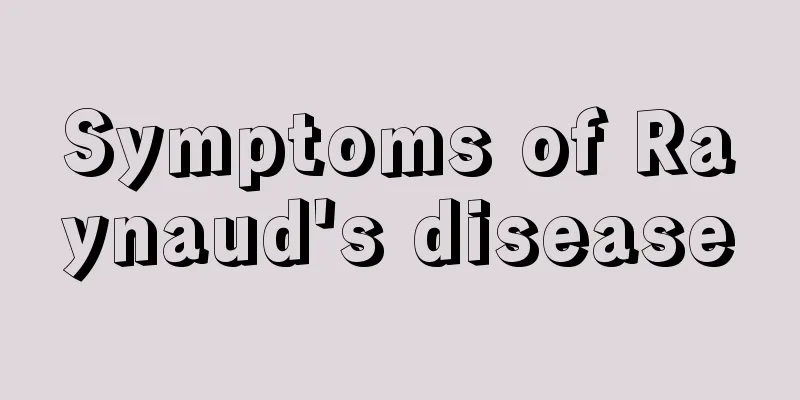What is the reason for a sore and swollen nose

|
When the seasons change or when the cold air invades, we often feel soreness and swelling in the nose. In addition to the above seasonal and climatic reasons, we often feel soreness and swelling in the nose. So what is the reason for the soreness and swelling in the nose? It may be due to physiological reasons or it may be caused by rhinitis. Therefore, let’s learn about rhinitis together. Causes of sore nose It is considered to be caused by rhinitis, accompanied by symptoms such as nasal congestion, nasal congestion, and dizziness. 1. Viral infection Viral infection is the primary cause, or bacterial infection is secondary to viral infection. More than 100 viruses are known to cause this disease, the most common of which is rhinovirus, followed by influenza and parainfluenza viruses, adenovirus, coronavirus, coxsackievirus, and myxovirus and paramyxovirus. The virus is mainly transmitted through inhalation through the respiratory tract, and secondly through entering the body through contaminated objects or food. 2. Genetic factors People with a family history of allergies are more likely to develop this disease. Most family members of the patients have a history of asthma, urticaria or drug allergy. In the past, such patients were called atopic individuals, whose ability to produce IgE antibodies was higher than that of normal people. However, in recent years, some people have found that there is no significant difference in the incidence rate between twins and the general population. 3. Susceptibility of nasal mucosa Susceptibility arises from frequent stimulation by antigenic substances, but the degree of susceptibility depends on the number of mast cells and alkaliphils in the nasal mucosal tissue and the ability to release chemical mediators. It has been confirmed that the number of the above-mentioned cells in the nasal mucosa of patients with allergic rhinitis is not only higher than that of normal people, but also has a stronger ability to release chemical mediators. 4. Antigenic substances Antigen substances that stimulate the body to produce IgE antibodies are called allergens. When the allergen enters the nasal mucosa again, it combines with the corresponding IgE and causes an allergic reaction. The allergens that cause this disease are divided into two categories according to the way they enter the human body: inhalation and food. What to do if your nose is sore 1. Treatment of the cause Identify systemic and local causes, and promptly treat systemic chronic diseases, sinusitis, adjacent infected lesions, and deviated nasal septum. Improve living and working environment, exercise, and enhance body resistance. 2. Local treatment (1) Intranasal glucocorticoids: The first choice for chronic rhinitis, it has good anti-inflammatory effects and ultimately produces a decongestive effect. It can be used for a longer period of time as needed, with good efficacy and safety. (2) Nasal cleaning: For those with more or thicker nasal secretions, the nasal cavity can be cleaned with saline to remove nasal secretions and improve nasal ventilation. |
<<: What is the reason for the left kidney swelling
>>: There is a slight pain around the stomach
Recommend
What causes cramps? What causes cramps while sleeping?
Cramps occur frequently, especially at night when...
What method can be used to recover faster from facial allergies?
For some people with allergic skin, once an aller...
What does potassium chloride sustained-release tablets treat?
In our lives, we treat hypokalemia caused by vari...
What's wrong with the pimples on my back that don't hurt or itch?
Although back acne is invisible, it always makes ...
Is it good to soak your feet in hot water during the dog days of summer?
Foot soaking has many benefits to the body. Now t...
What are some quick ways to relieve itching from eczema?
Eczema is an itchy skin disease. The cause of ecz...
What to do if you inhale a small amount of gas
What should you do if you inhale a small amount o...
How to wash medicine stains off clothes
In daily life, we often encounter situations wher...
What is the natural hair dye formula
Friends who want to dye their hair but don’t want...
Exercises to reduce belly fat at night
Exercises to reduce belly fat at night is an issu...
How many days after the scraping can I wash my hair
Adults often choose to have scraping treatment du...
Analysis of common treatments for bladder cancer
With the advancement of social science and techno...
Do you know what are the symptoms of bladder cancer?
The bladder is a part of the human body and is a ...
Will chemotherapy for malignant hydatidiform mole cause hair loss?
Chemotherapy for malignant hydatidiform mole ofte...
What's going on with yellow eyeballs?
When you find that your eyeballs are turning yell...









